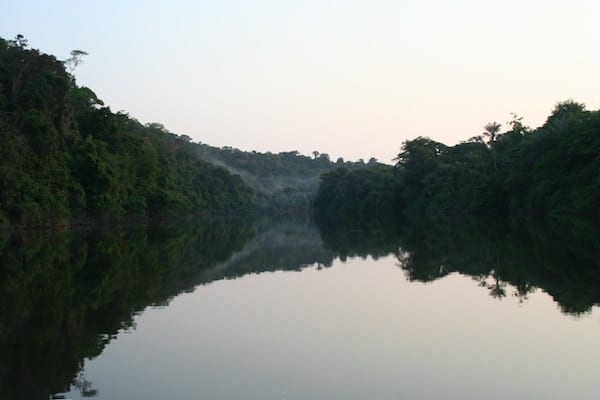

The make up of Brazil’s new legislative body will have a big impact on the world because of a surge in the so-called ruralist bloc and their track record on environmental protections in the Amazon.
MELISSA BLOCK, HOST:
After this month’s elections Brazil has a new congress and it’s one of the most conservative since the 1960s. Environmentalists are concerned about what impact the lawmakers might have on Amazon conservation efforts. We have more from NPR’s Lourdes Garcia-Navarro in Sao Paulo.
LOURDES GARCIA-NAVARRO, BYLINE: Brazil has one of the largest rain forests in the world. Since 2014, deforestation has declined here some 80 percent, but those downward trends in the past two years have reversed dramatically and there’s a major cause, a forestry law that was passed by Brazil’s congress.
PAULO MOUTINHO: Yeah, I’m very worried because Brazil did a lot of progress. Take Amazon as example, in terms of reduced deforestation, but we need to do more, we need to consolidate.
GARCIA-NAVARRO: That’s Paulo Moutinho from the Amazon Environmental Research Institute. He says a group within Brazil’s congress called the Bancada ruralista or the Pro-agro business rural caucus has wielded a lot of power. Pedro Telles is from Greenpeace.
PEDRO TELLES: They’ve been able over the last four years to block some important initiatives in terms of environmental issues, such as the forest codes. They’ve been able to approve a weaker forest code than was in the past. They have another agenda that includes trying to reduce indigenous peoples’s rights.
GARCIA-NAVARRO: The rural caucus now projects it will have an absolute majority to be able to push legislation through, some 270 lawmakers. In 2013, deforestation in Brazil jumped 29 percent according to official data. Environmentalists say the so-called lungs of the world could be further compromised by weaker environmental protections. Alberto Verissimo is from Imazon, one of the main groups here that monitors deforestation in the Amazon.
ALBERTO VERISSIMO: (Speaking Portuguese).
GARCIA-NAVARRO: He says in previous administrations the executive has put a brake on bad environmental legislation, but the current president, Dilma Rousseff, has not done so.
VERISSIMO: (Speaking Portuguese).
GARCIA-NAVARRO: If Dilma is reelected, we have a terrible scenario, he says, because then we have a combination of a congress that is more conservative, with a president who acts against the environment, too. Lourdes Garcia-Navarro, NPR News, Sao Paulo.
This post was published on 21 de October de 2014
States with the most deforestation in January were Mato Grosso, Roraima and Pará Deforestation…
According to the Green Radar report, in 2024, out of the 146 companies assessed, 6…
A survey of more than 3,500 lawsuits showed an increase in punishments, while payment of…
A group made up of specialists from 23 different professions trained in the Sustainable Amazon…
The degraded area increased due to burning, especially in August and September In 2024,…
The program is scheduled to last 15 years and will include local indigenous peoples and…